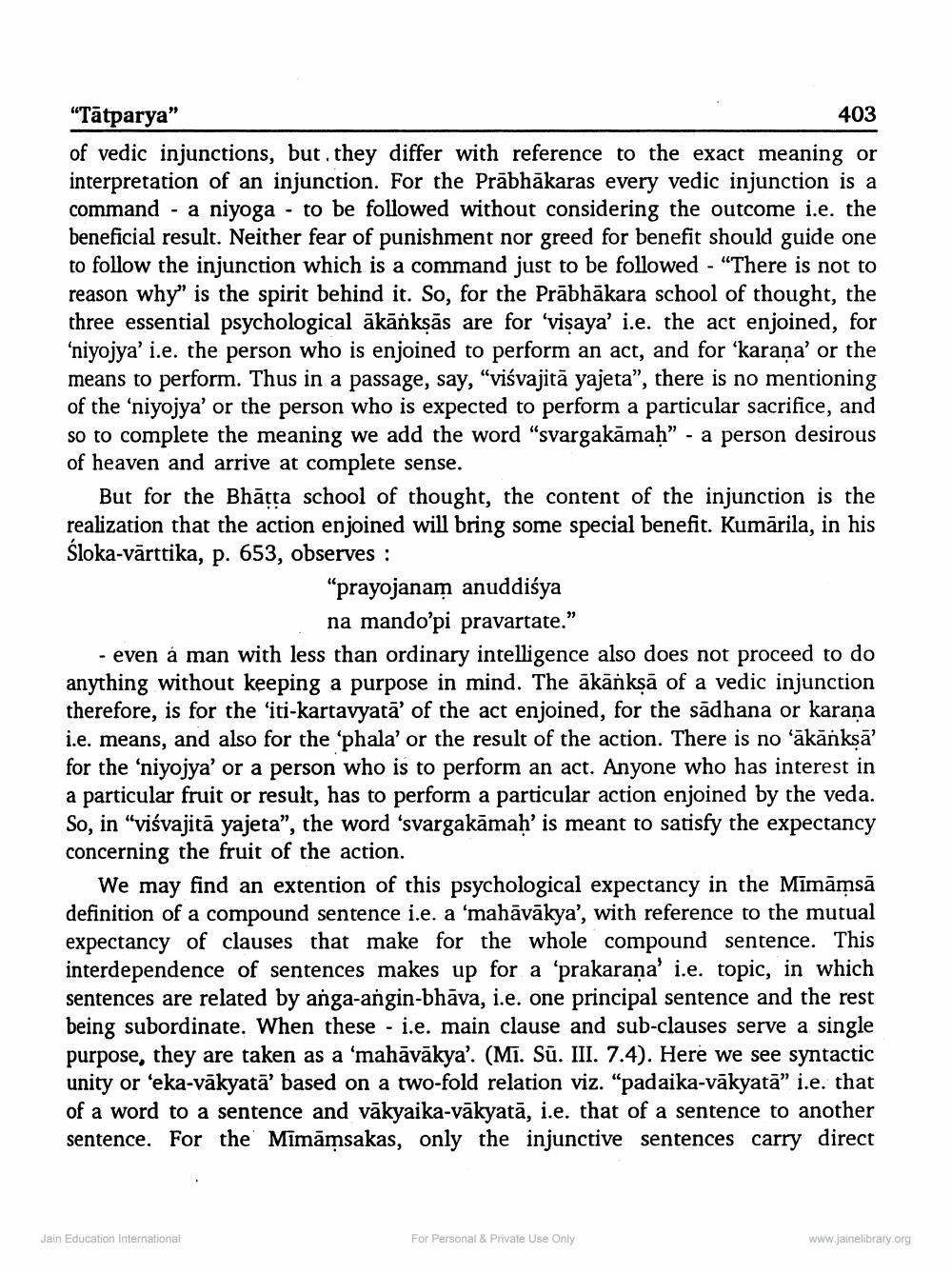________________
"Tātparya"
403 of vedic injunctions, but they differ with reference to the exact meaning or interpretation of an injunction. For the Prābhākaras every vedic injunction is a command - a niyoga - to be followed without considering the outcome i.e. the beneficial result. Neither fear of punishment nor greed for benefit should guide one to follow the injunction which is a command just to be followed - "There is not to reason why" is the spirit behind it. So, for the Prābhākara school of thought, the three essential psychological ākānkṣās are for 'visaya' i.e. the act enjoined, for 'niyojya' i.e. the person who is enjoined to perform an act, and for 'karana' or the means to perform. Thus in a passage, say, “viśvajitā yajeta”, there is no mentioning of the ‘niyojya' or the person who is expected to perform a particular sacrifice, and so to complete the meaning we add the word "svargakāmah" - a person desirous of heaven and arrive at complete sense.
But for the Bhātta school of thought, the content of the injunction is the realization that the action enjoined will bring some special benefit. Kumārila, in his Śloka-vārttika, p. 653, observes :
"prayojanam anuddiśya
na mando’pi pravartate.” - even a man with less than ordinary intelligence also does not proceed to do anything without keeping a purpose in mind. The ākānksā of a vedic injunction therefore, is for the 'iti-kartavyatā' of the act enjoined, for the sādhana or karana i.e. means, and also for the 'phala' or the result of the action. There is no ‘ākānksā’ for the 'niyojya' or a person who is to perform an act. Anyone who has interest in a particular fruit or result, has to perform a particular action enjoined by the veda. So, in “viśvajitā yajeta", the word 'svargakāmah' is meant to satisfy the expectancy concerning the fruit of the action.
We may find an extention of this psychological expectancy in the Mīmāmsā definition of a compound sentence i.e. a 'mahāvākya', with reference to the mutual expectancy of clauses that make for the whole compound sentence. This interdependence of sentences makes up for a 'prakarana' i.e. topic, in which sentences are related by anga-angin-bhāva, i.e. one principal sentence and the rest being subordinate. When these - i.e. main clause and sub-clauses serve a single purpose, they are taken as a 'mahāvākya'. (Mi. Sū. III. 7.4). Here we see syntactic unity or 'eka-vākyatā' based on a two-fold relation viz. "padaika-vākyatā” i.e. that of a word to a sentence and vākyaika-vākyatā, i.e. that of a sentence to another sentence. For the Mimāmsakas, only the injunctive sentences carry direct
Jain Education International
For Personal & Private Use Only
www.jainelibrary.org




